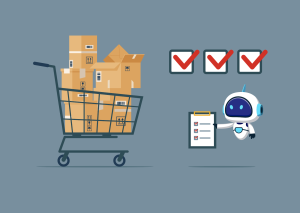“As the following graph shows, prices for goods (and PPI) continue to increase… It illustrates rate of increase of a large basket of goods (including strategic and consumable items) compared to PPI and the movement in the Rand’s value against major Western currencies,” Alan Low MD of Purchasing Index tells SmartProcurement. “The graph highlights not only the increase in many commodities including steel, chemicals, wood, etc, but also points towards the lack of competition in many areas of local supply.”
The increase in costs is putting a squeeze on profit margins in many industry sectors, and procurement organizations are searching for ways to mitigate the effects of spiraling costs.
Low cost country sourcing (LCCS) is on the to-do list for many procurement departments and agencies. Rumours abound of lower-priced and better quality products available for the Far East. While many are looking at global sourcing initiatives, several organizations have already burnt their fingers as a result of one of the many risks associated with this.
At recent forum hosted by Purchasing Index, Smart Procurement Editor Bernie van Niekerk quoted research conducted by McKinsey Consulting that exploded some of the myths around LCC’s, including:
• Suppliers aren’t waiting for a call from SA organizations and don’t jump at responding to our Tenders, etc
• Suppliers in the Far East often have enough local business and aren’t actively looking for foreign markets
• Suppliers require local customers to market themselves, so that LCC suppliers understand the potential of doing business in SA.
In addition Hugh-John Townsend of Townsend International says that Chinese suppliers put great emphasis on building relationships with their customers before doing business.
In RSA business tends to come first and relationship building later. Townsend, whose company is experienced in global sourcing for local organizations, says that other risks of LCCS include:
• Cultural/language differences
• Exchange rates
• The need to identify the correct countries for a particular commodity
• Quality control
• Site visits
• Social responsibility issues (i.e. child labour, etc.)
• Responsibility in international transactions (Inco terms)
• Changes in LCC export subsidies
• Logistics
• Customs clearance
• Etc, etc.
The above highlights the need for a very detailed understanding of the markets and suppliers that SA organizations may wish to source from. Having expert advice and/or agents could go a long way to ensure a long, fruitful and lower-cost relationship.
If you are interested in joining the discussion about LCC’s or need to source from low cost countries please contact the author Alan Low at alan@pricetrak.co.za


























